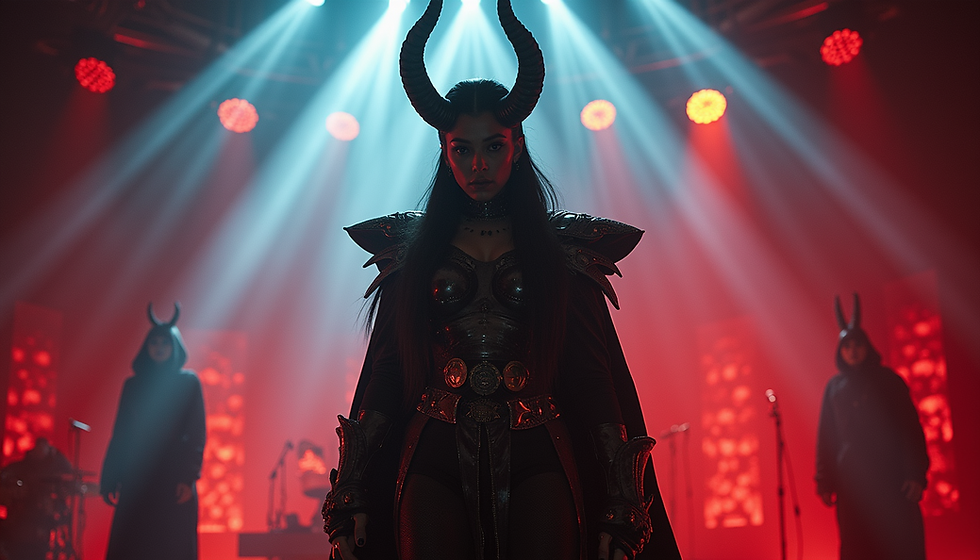Exploring the Impact of Halo on Gaming Culture and Community
- Joseph Fanning
- Oct 5, 2025
- 3 min read
The "Halo" franchise has become a cornerstone of gaming culture since its debut in 2001. Initially developed by Bungie and later managed by 343 Industries, Halo has completely transformed the landscape of first-person shooters. More than just a game, it has nurtured a worldwide community of players and fans. This blog post explores the profound impact of Halo on gaming culture, focusing on its influence in gameplay mechanics, storytelling, and community engagement.
The Birth of a Franchise
When "Halo: Combat Evolved" launched alongside the original Xbox, it set new standards for console gaming. The game introduced audiences to Master Chief and the vast universe of Halo’s ringworlds. Notably, it introduced features like regenerating health and vehicle combat, which changed the way players approached first-person shooters.
Aside from its innovative gameplay, Halo delivered a gripping narrative that intricately wove science fiction with themes of heroism and sacrifice. For example, the portrayal of the Covenant as an alien threat challenged players to think about humanity’s struggle for survival. This blend of engaging gameplay and deep storytelling set the foundation for a franchise that grew to include five main games, multiple spin-offs, novels like “Halo: The Fall of Reach,” and animated series such as “Halo: Legends.”

Gameplay Innovations
Halo's gameplay introduced innovations that continue to influence the gaming industry today. The addition of multiplayer modes, especially in "Halo 2," helped popularize online gaming on consoles. This game enabled players to engage in competitive matches, create clans, and build communities. By 2005, online play had grown to such an extent that over 2 million players participated in Halo 2's matchmaking, illustrating its massive impact.
The franchise also broke new ground with vehicle use in first-person shooters. Players could experience combat from different perspectives using vehicles like the Warthog or Scorpion tank. This element encouraged teamwork and strategic planning, leading to gameplay experiences that were more cooperative and dynamic. Many subsequent games, such as "Call of Duty" and "Battlefield," adopted similar mechanics, highlighting Halo's significant influence on game design.
Storytelling and Lore
Halo's narrative depth is one of the key factors contributing to its cultural impact. The franchise is well-known for its intricate lore, expanded through various mediums, including novels, comics, and animated series. This storytelling strategy has produced a dedicated fanbase that engages deeply with the universe.
Themes such as the struggle between humanity and alien species resonate widely, with character development adding emotional weight to the story. For instance, Master Chief's relationship with AI companion Cortana is both complex and relatable, leading players to invest in their journey. Fan theories and discussions frequently emerge on forums, providing a fertile ground for creative works and community engagement.
Community Engagement
The Halo community is known for its passion and dedication. Fans express their love through various creative outlets, from artwork to cosplay. Events like Halo tournaments and fan conventions bring people together, fostering a sense of belonging. For example, the Halo Championship Series has attracted thousands of participants and spectators, with prize pools reaching over $1 million.
Developers have embraced community feedback, actively engaging with players to refine gameplay experiences. This dialogue strengthens the bond between the franchise and its audience, allowing players to feel valued. Moreover, streaming platforms have increased accessibility to Halo gameplay, enabling content creators to share their experiences widely. As a result, new players are regularly drawn into the franchise, ensuring its long-term relevance.
The Evolution of Halo
As the franchise has progressed, so too has its approach to gameplay and storytelling. "Halo 3" and "Halo: Reach" expanded player expectations by introducing new mechanics while refining existing gameplay. The transition to 343 Industries brought fresh ideas and innovations, exemplified by "Halo 4" and "Halo 5: Guardians."
These installments explored new narratives and gameplay styles, all while respecting the franchise's roots. The release of "Halo Infinite" marked a significant return to form, blending iconic elements with contemporary design philosophies. This evolution is a testament to Halo's ability to adapt and grow while staying true to its core identity.
Lasting Legacy of Halo
The impact of Halo on gaming culture is undeniable. From its groundbreaking innovations to its rich storytelling and loyal fanbase, the franchise has significantly shaped gaming for over two decades. As Halo continues to evolve, it remains a beloved series that inspires creativity, connection, and passion among players.
Halo’s legacy lies not only in its gameplay but in the thriving community it has built. As new generations of players discover the franchise, the spirit of camaraderie and competition will continue to flourish. Whether through competitive play, fan creations, or engaging discussions, Halo is positioned to stay a vital part of gaming culture for years to come.
Joe has played Halo since he was young.










Comments